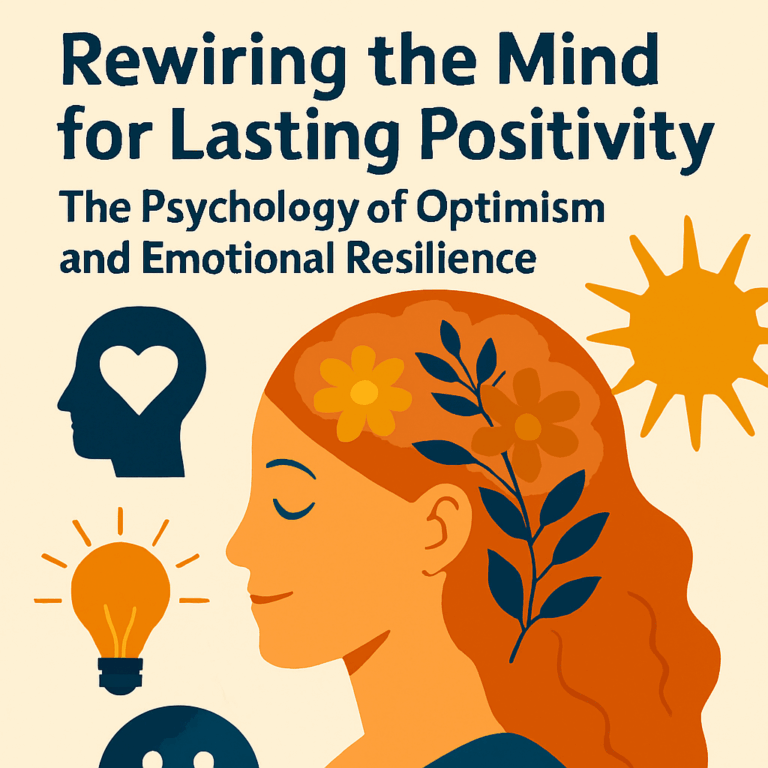The Psychology of Winning – When Triumph Heals and When It Hurts
Understanding the Drive to Win – Psychological Foundations and Cultural Conditioning Sustainable Success – Balancing Achievement with Emotional and Ecological Integrity
Psychology of Winning
Winning activates deep psychological mechanisms rooted in evolution, culture, and neurobiology. It can reinforce resilience, sharpen focus, and catalyze innovation. But when winning becomes compulsive or detached from ethical and emotional grounding, it can distort identity, erode empathy, and trigger burnout. The goal is not to glorify or vilify victory, but to understand its psychological architecture and systemic consequences.
Evolutionary Roots of Competition
Human competition evolved as an adaptive strategy for resource acquisition and survival. Early hominins competed for food, mates, and territory, shaping neural circuits that reward dominance and success. Dopamine pathways reinforce goal-directed behavior, while serotonin modulates social status and mood. These mechanisms persist in modern contexts—sports, business, academia—where symbolic victories trigger the same neurochemical responses. The brain interprets success as a survival signal, even when the stakes are abstract. Chronic competition without recovery leads to elevated cortisol levels, reduced immune function, and impaired emotional regulation. Evolution favored balance, not perpetual triumph.

Cultural Conditioning and the Myth of Winning
Cultural narratives shape how individuals perceive success and failure. Western societies often equate winning with personal worth, while Eastern traditions emphasize balance and detachment. Media and education systems reinforce binary outcomes—win or lose, succeed or fail—creating psychological rigidity. Children internalize these messages early, linking self-esteem to performance. This conditioning fosters perfectionism, fear of failure, and reduced emotional resilience. Cultural myths about winning obscure the value of process, collaboration, and ethical nuance. Deconstructing these myths allows for more adaptive and inclusive definitions of success.
Neurochemistry of Victory
Winning triggers a neurochemical cascade involving dopamine, serotonin, and endorphins. Dopamine enhances motivation and reinforces reward-seeking behavior. Serotonin contributes to feelings of pride and social dominance. Endorphins reduce pain and increase euphoria, especially in physical competition. These chemicals create a feedback loop—success leads to craving more success. Over time, this loop can resemble addiction, with withdrawal symptoms emerging when victories cease. Emotional regulation and reflective practices help mitigate dependency on neurochemical highs. Sustainable achievement requires awareness of these internal dynamics.
Identity and the Winner’s Trap
Success can shape identity, but over-identification with winning creates psychological vulnerability. When self-worth depends on external validation, individuals become less adaptable and more anxious. Athletes, executives, and creatives often experience identity crises after major losses. The winner’s trap involves conditional self-esteem, perfectionism, and avoidance of risk. Psychological resilience depends on flexible identity structures that prioritize effort, learning, and ethical alignment over outcomes. Separating personal value from performance metrics fosters long-term emotional stability.
Narcissism and Empathy Erosion
Repeated success without reflection can increase narcissistic traits—entitlement, grandiosity, and diminished empathy. Studies in organizational psychology show that unchecked winning correlates with reduced team cohesion and ethical lapses. Empathy erosion occurs when others are viewed as obstacles rather than collaborators. This mindset undermines relationships and decision-making. Emotional intelligence and gratitude practices counteract these tendencies. Sustainable leadership integrates humility and perspective into competitive environments.

Psychology Of Losing
Burnout and the Cost of Constant Winning
High achievers often sacrifice rest, relationships, and reflection to maintain winning streaks. Chronic overexertion leads to burnout—characterized by emotional exhaustion, depersonalization, and reduced performance. Burnout is a systemic signal that current strategies are unsustainable. Recovery involves more than rest—it requires redefinition of success, boundary setting, and emotional recalibration. Sustainable achievement honors biological rhythms and psychological needs. Without these, winning becomes a treadmill rather than a triumph.
Ethical Blind Spots in Competitive Contexts
The pursuit of victory can distort ethical judgment. Moral disengagement allows individuals to rationalize harmful behavior in service of success. Competitive environments often reward results over integrity, creating blind spots in decision-making. Ethical clarity requires internal anchors—values that guide behavior regardless of outcomes. Organizational psychology emphasizes the role of ethical culture in mitigating misconduct. Winning without integrity compromises long-term trust and systemic health.
Team Dynamics and Shared Victory
Group success introduces complex psychological dynamics. Shared victories can strengthen bonds or trigger rivalry, depending on communication and role clarity. Psychological safety—where individuals feel valued and heard—enhances team performance and resilience. Leaders influence team culture by distributing credit fairly and managing conflict constructively. Collective achievement fosters emotional support networks and reduces isolation. Understanding team psychology is essential for sustainable collaboration.
Failure as a Component of Sustainable Winning
Failure is a critical element of psychological growth. It builds resilience, reveals blind spots, and fosters innovation. Cultures that stigmatize failure reduce emotional flexibility and risk-taking. Reframing failure as feedback encourages learning and adaptation. Behavioral science shows that individuals who embrace failure develop stronger problem-solving skills and emotional regulation. Sustainable success includes space for loss, reflection, and recalibration.

Ecological Psychology and Systemic Impact
Winning has systemic consequences beyond individual achievement. In business, dominance can lead to resource depletion and reduced diversity. In sports, overtraining increases injury risk and long-term health issues. Ecological psychology examines how human behavior affects broader systems—social, environmental, and cultural. Sustainable success considers these ripple effects and prioritizes ethical alignment with planetary health. Victory that harms ecosystems or communities is not sustainable.
Emotional Intelligence and Psychological Sustainability
Emotional intelligence supports sustainable achievement by enhancing self-awareness, empathy, and social skills. It enables individuals to manage pressure, navigate conflict, and build meaningful relationships. Psychological sustainability involves maintaining mental health while pursuing goals. This includes boundary setting, reflective practices, and support systems. Emotional intelligence reduces burnout and increases adaptability. It transforms winning from a fragile pursuit into a resilient process.
Rituals of Reflection and Integration
Post-victory reflection deepens learning and prevents emotional stagnation. Rituals such as journaling, mentoring, and community sharing help individuals integrate success meaningfully. These practices reveal patterns, clarify values, and reduce ego inflation. Integration transforms achievement into wisdom rather than fleeting gratification. Reflective rituals build emotional depth and ethical clarity, supporting long-term fulfillment.
The Psychology of Losing
Losing fosters humility, empathy, and emotional maturity. It reveals blind spots and invites growth. The fear of losing can lead to avoidance, aggression, or unethical behavior. Embracing loss reduces anxiety and increases adaptability. Behavioral studies show that individuals who learn from defeat develop stronger resilience and problem-solving capacity. Sustainable success includes graceful losing as part of a larger developmental arc.

Redefining Success Beyond Winning
Success is not synonymous with victory. True success includes integrity, impact, and emotional fulfillment. It values process over perfection and collaboration over domination. Redefining success expands possibilities and reduces psychological rigidity. It allows for diverse paths and outcomes, fostering inclusivity and creativity. Behavioral science supports multidimensional success metrics that honor effort, ethics, and systemic contribution.
Conclusion
Winning is a powerful psychological force—capable of inspiring growth or triggering collapse. Its impact depends on context, regulation, and reflection. Sustainable success integrates emotional intelligence, ethical clarity, and ecological awareness. It honors cycles of effort, failure, and renewal. Understanding the psychology of winning allows individuals and systems to thrive without compromising integrity or well-being. Victory is not the end—it’s part of a larger journey toward meaning and resilience.
Join the Discussion
How do you define success in your own life? Have you experienced the highs and lows of winning—and what did they teach you?
#PsychologyOfWinning #SustainableSuccess #EmotionalIntelligence #ResilientMindset #EthicalAchievement #WinningAndWellbeing #Neuropsychology #CulturalConditioning #TeamDynamics #EcologicalPsychology








One Comment